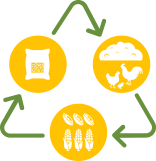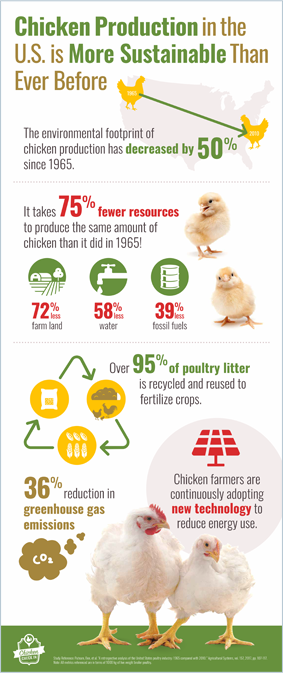Sustainability
The U.S. chicken industry is committed to environmentally responsible and sustainable chicken production practices to ensure a healthier planet.

Chicken production in the U.S. is more sustainable than ever before.
The environmental footprint of chicken production has decreased by 50% since 1965.

It takes 75% fewer resources to produce the same amount of chicken than it did in 1965.
It takes 58% less water and 72% less farm land to produce the same amount of chicken than it did in 1965.

Over 95% of poultry litter is recycled and reused to fertilize crops.
Poultry litter is an extremely valuable resource in agriculture. Farmers collect and store poultry litter to be used as an organic fertilizer for crops. Plants feed the chickens and chickens fertilize the plants – it’s a closed, sustainable nutrient loop.

36% reduction in greenhouse gas emissions.
Chicken farmers are continuously adopting new technology to reduce energy use.
What Sustainability Means to Chicken Farmers
For the chicken industry, sustainability means being responsible stewards of land, water and feed management, and maintaining and advocating for the humane treatment of our most important asset: our chickens.
